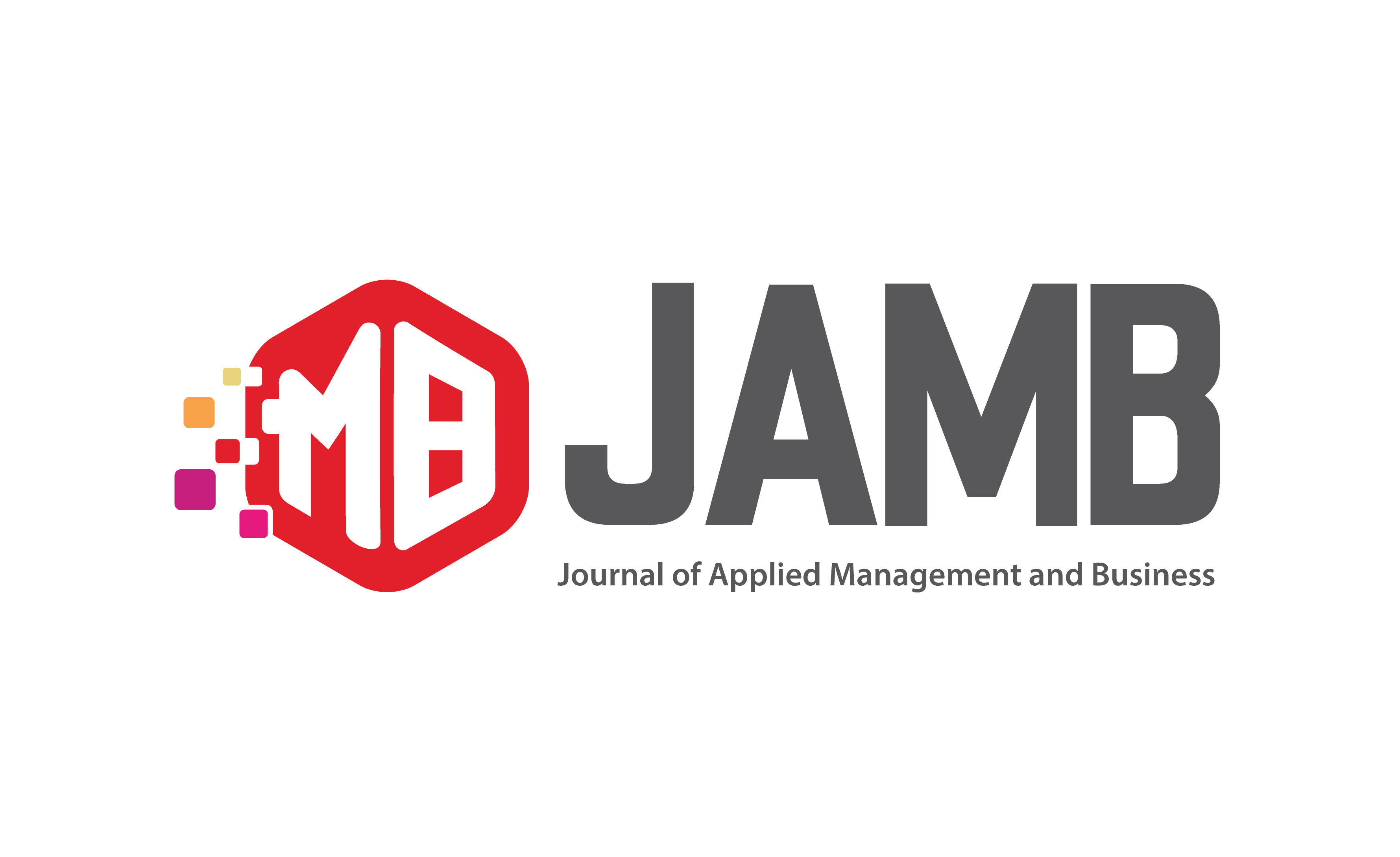Job Burnout Among Hotel Employees: The Impact on OCB and Employee Performance
DOI:
https://doi.org/10.37802/jamb.v5i1.675Keywords:
Employee performance, Job Burnout, Organizational Citizenship BehaviorAbstract
The company’s success is determined by employee performance. To ensure that the employees are able to deliver their best performance, the company must pay attention on various factors, for instance: job burnout. Job burnout often occurs among hotel employees. Hotels must operate resourcefully to deliver good quality service continuously. The tasks at the hotel are very demanding, and the work environment is stressful. Every employee is forced to be able to work multitasking rapidly and skillfully so that the hotel can operate effectively and efficiently. The research objective is to determine the impact of job burnout on employee performance by using organizational citizenship behavior as an intervening variable for hotel employees. In this quantitative research, a survey was conducted on 120 employees who worked in a number of two-star hotels in Surabaya. The sample was determined using a purposive sampling technique. The data obtained was processed using the Partial Least Square analysis technique. The research results show that job burnout can significantly disrupt employee performance and organizational citizenship behavior. Meanwhile, organizational citizenship behavior can significantly improve employee performance. Organizational citizenship behavior has also been proven to be able to act as a mediating variable in the relationship between job burnout and employee performance.
Downloads
References
Lemonaki, R., Xanthopoulou, D., Bardos, A.N., Karademas, E.C. and Simos, P.G., 2021. Burnout and job performance: a two-wave study on the mediating role of employee cognitive functioning. European Journal of Work and Organizational Psychology, 30(5), pp.692-704. https://doi.org/10.1080/1359432X.2021.1892818
Torlak, N.G., Kuzey, C., Sait Dinç, M. and Budur, T., 2021. Links connecting nurses’ planned behavior, burnout, job satisfaction, and organizational citizenship behavior. Journal of Workplace Behavioral Health, Vol. 36 No. 1, pp. 77-103. https://doi.org/10.1080/15555240.2020.1862675
Chen, I., Peng, N.L. and Ann, C.C., 2020. " I AM TIRED"-Job Burnout and Citizenship Behaviour in an Organization: Occupational Commitment as a Mediator in a Malaysian Private University. International Dialogues on Education: Past and Present, 7(2), pp.80-93. EJ1278570.pdf (ed.gov)
Y. Ding, Y. Yang, X. Yang, T. Zhang, X. Qiu, X. He, W. Wang, L. Wang, H. Sui, The mediating role of coping style in the relationship between psychological capital and burnout among Chinese nurses. Plos One, Vol. 10, No. 4, pp. 1–14, 2015. The Mediating Role of Coping Style in the Relationship between Psychological Capital and Burnout among Chinese Nurses (plos.org)
R. Kreitner, A. Kinicki. Organizational Behavior. Irwin: McGraw-Hill. (2010).
C. Maslach, M.P. Leiter, “Understanding the burnout experience: recent research and its implications for psychiatry”, World Psychiatry. Vol. 15, No. 2, pp. 103–111, 2016. Understanding the burnout experience: recent research and its implications for psychiatry (nih.gov)
M.S. Aslam, F. Ahmad. S. Anwar, “Job Burnout and Organizational Citizenship Behavior: Mediating Role of Affective Commitment“, Journal of Basic and Applied Scientific Research, Vol. 2, No. 8, pp. 821–829, 2012. [PDF] Job Burnout and Organizational Citizenship Behaviors: Mediating Role of Affective Commitment | Semantic Scholar
S.P. Robbins, T.A. Judge. Organizational Behavior 15th Edition. New Jersey: Prentice Hall. (2013).
L.K. Jena, "Does workplace spirituality lead to raising employee performance? The role of citizenship behavior and emotional intelligence", International Journal of Organizational Analysis, Vol. 30, No. 6, pp. 1309-1334. 2022. https://doi.org/10.1108/IJOA-06-2020-2279
D.W. Organ, P.M. Podsakof, B.S. MacKenzie. Organizational Citizenship Behavior: Its Nature, Antecedents, and Consequences. USA: Sage Publications (2006).
D. Harjanti, F. Todani, “Burnout and Employee Performance in Hospitality Industry: The Role of Social Capital”, Jurnal Tenik Industri, Vol. 21, No. 1, pp. 15-24, 2019. Burnout and Employee Performance in Hospitality Industry: The Role of Social Capital | Jurnal Teknik Industri (petra.ac.id)
S. Yener, A. Arslan, S. Kilinç, “The moderating roles of technological self-efficacy and time management in the technostress and employee performance relationship through burnout”, Information Technology & People. Vol. 34, No. 7, pp. 1890-919, 2021.
J. Colquitt, J.A. LePine, M.J. Wesson. Organizational behavior: improving performance and commitment in the workplace. New York: McGraw-Hill Irwin. (2011).
J.B. Miner. Organizational Behavior I : Essential theories of motivation and leadership. New York : M.E. Sharpe (2005).
J.F. Hair, W.C. Black, B.J. Babin, R.E. Anderson, R.L. Tatham, Multivariate Data Analysis, 6th Ed., New Jersey: Prentice Hall (2006).
M. Sarstedt, C.M. Ringle, J.F. Hair. Partial Least Squares Structural Equation Modeling. In: Handbook of Market Research. C. Homburg, M. Klarmann, A. Vomberg (Eds.), Heidelberg: Springer (2017).











